I haven’t posted a Fortitude Substack since February, but not for lack of wanting. I’ve been speechless, overwhelmed by the daily news as our Democracy endures the assaults of this authoritarian, fascist regime and suck-ups.
I woke from a dream one morning where my frozen inner-writer said, “I got nothing!” as in no words to express myself with clarity or the wisdom I felt I should be able to muster into a Substack post or some post online. So many others are doing it well, I couldn’t think what to add. I gave myself grace, letting others do the talking, while I tried to integrate my feelings and learn.
Yet in person, offline, in real life, something else was happening. I’ve been finding my people down the street and around the Grand Valley, “well-met” kindred spirits equally passionate (curious?) about “doing something” to reclaim our Democracy and fight back. It was my neighbor’s invitation to me and about 30 other women that led to a Sunday-afternoon get-together in her living room in February. She was tired of crying alone on her couch since November.
She asked “What are your ‘whys’ for why you are here?” and “What would you like to do” — two open, honest questions that generated a lot of good energy.
We’re not the only ones asking such questions. Groups around our valley are creating community in small and big ways. Creating solidarity among groups. Creating more invitations to show up and shout, share, connect. We’re doing this in person, as well as online—seeking ways to organize using apps and social media.
It’s this offline courage I’m seeing—and experiencing—that now keeps me up at night. Along with the big worry is an energizing caffeine of feeling that “we are all in this together,” which Parker Palmer has named in Healing the Heart of Democracy as the first “habit of the heart.” Here are all five:
An understanding that we are all in this together
An appreciation of the value of “otherness”
An ability to hold tension in life-giving ways
A sense of personal voice and agency
A capacity to create community
Offline courage looks like the PHYSICAL COURAGE to show up to a march, carrying a sign, shouting and walking, even talking on a megaphone as I did at the May Day March to invite folks to save the date for something on June 14th. I surprised myself for using my voice in that way, because that is FAR beyond my comfort zone! It feels small compared to the courage some people need to live their lives every day. To wake up in war zones, in fear of deportation, in fear of new strains of COVID or hate crimes. It takes courage to risk your own safety, running toward mayhem and victims, as one of my friends did on Boulder’s Pearl Street last weekend.
Offline courage looks like the SOCIAL COURAGE to show up at meetings and coffee shops, sharing why we care about the issues we do—whether that’s naming our LGBTQ+ children, outrage over ICE raids and fear for our immigrants, the veterans in our families, our fears about the hate, bullying, and push-back against teachers teaching historical fact that is happening in schools, our worries for Medicaid and healthcare, the planet, wars overseas, human injustices, or just feeling lonely and wishing to find a sense of belonging in such divisive times.
Offline courage looks like the MORAL COURAGE to speak up at rallies, to show up on street corners, to ask questions at town hall events, to wear T-shirts and carry signs proclaiming “Hands off ____!” and demanding accountability. Moral courage does’t have to be loud or in public. Sometimes it whispers or speaks without words.
Of course there’s an online, digital component that looks like making calls with the 5calls app, phone calling and emailing our House rep and senators, posting in safe groups on social media to share news and encouragement. But it’s analog friendship, in-person, the people we’ve met face to face, who we trust to receive and reciprocate in our digital space. Fewer faceless profiles clicking “like,” they’re now people we’ve met, even hugged, many of whom we didn’t know six months ago.
Offline courage looks like CREATIVE COURAGE to be creating community for so many reasons, reasons that have gotten us off our couches, away from our keyboards and out into parks and places we’re finding each other in person. We’re creating signs for rallies, creating plans for engagement, creating connections to organize for bigger issues and local elections.
Being creative means painting your vision of what needs to be different, going for it, and inspiring others to take action, too. Being creative means leading the way with new ideas, new ways to act with integrity to achieve sustainable change.
That’s why we need people who are artists at heart, while their heads and hands are willing to create change and solutions of all kinds around the globe. Connecting to your own form of artful, wholehearted leadership brings out your gifts for creating positive change.
—from The Courage Way, p 13
We’re creating the kind of world we want to live in (as opposed to pure destruction). We’re creating connections across differences. Creating spaces for listening to varied opinions. Creating possibilities full of potential. We’re creating opportunities to experiment, fail, and try again. We’re creating a sense of community, and that takes courage of all kinds.
Offline courage creates a COLLECTIVE COURAGE that can only come together in an analog way (supported by digital connections that make our world smaller, more efficient sometimes, potentially more informed if we choose well). Collective courage happens by way of authentic, heartfelt invitations.
Inviting Courage
For those who don’t know me, I wrote a book released in 2018 called The Courage Way: Living and Leading with Integrity for the Center for Courage & Renewal. One of the leaders I interviewed (whose story opens the book) worked for a “think and do” tank nonprofit that hosted the first Earth Day in 1970 in Santa Barbara, and she was discerning whether to let Earth Day fold or to rejuvenate it. The leader invited a few people to get together and asked “What do you guys want to do together? Let’s have some fun.” And that led to renewed commitment for Earth Day celebrations but also collective courage and ongoing trust-based collaborations, including a Food Action Plan for the community that was poised to serve after big rains and mudslides.
When our new group hosted a community block party on April 19, we invited people to bring donations for area food banks. We literally collected one-ton of food. People were happy to be invited to be generous. We even saw a young college student walk up with a partially opened box of crackers he felt compelled to donate. We accepted.
Handing out flyers in person is another form of invitation. “We’d like to invite you to come make signs.” “We’d like to invite you to a dinner for veterans.” “We’d like to invite you to coffee to talk.”
To me, finding “voice and agency” is code-phrase for finding courage. Finding your voice and agency translates into your confidence and capacity for making change. It takes courage to overcome imposter syndrome. It takes courage to take risks. So where does that courage come from?
I’m publishing a book in September called How Shall I Stand Between River and Land? Heart Questions for Uncertain Times. It’s written by Leni de Mik, PhD, who was born in Nazi-occupied Holland, whose father was in the Dutch Resistance, who emigrated to Canada when she was 8, and became a clinical psychologist.
One of the questions Leni asks in her book is “For whom shall I risk?” That question almost haunts me, and has prodded me to find my courage this year. As we answer with WHO it speaks to our WHY, and then courage is what leads to our HOW. I believe our courage will come from our analog connections, as well as our digital inspirations and information. An online friend offered this list of questions recently:
The ancient question, “Who am I?” inevitably leads to a deeper one: “Whose am I?”– because there is no identity outside of relationship. You cannot be a person by yourself. To ask “Whose am I” is to extend the question far beyond the little self- absorbed self, and wonder: Who needs you? Who loves you? To whom are you accountable? To whom do you answer? Whose life is altered by your choices? With whose lives is your own all bound up, inextricably, in obvious or invisible ways?
~ Douglas Steere
Heart Questions for Uncertain Times:
What is your why?
Any of Douglas Steere’s questions: Who needs you? Who loves you? To whom are you accountable? To whom do you answer? Whose life is altered by your choices? With whose lives is your own all bound up, inextricably, in obvious or invisible ways?
Who and what gives you courage?

Some of My Why’s and Who’s
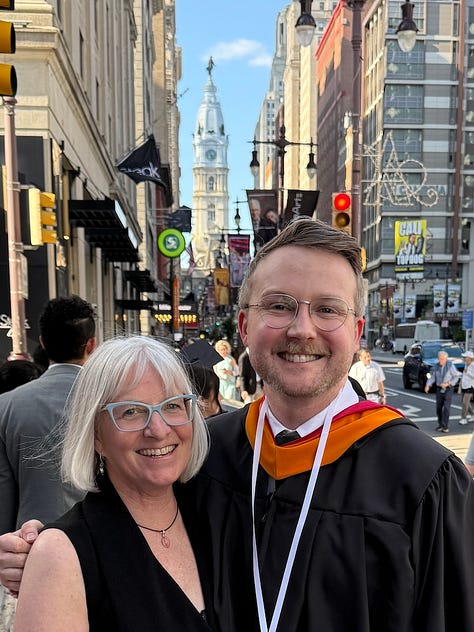
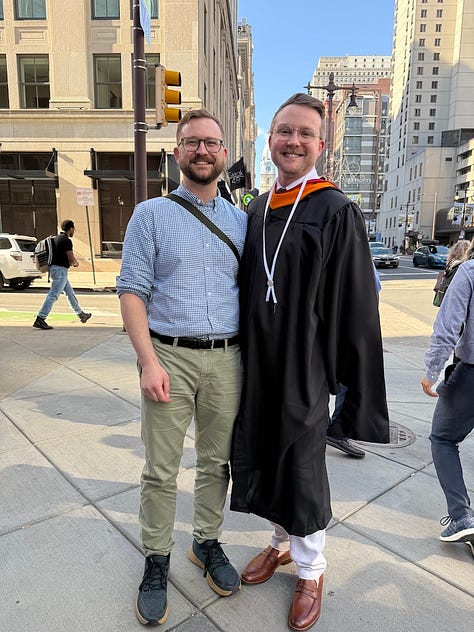

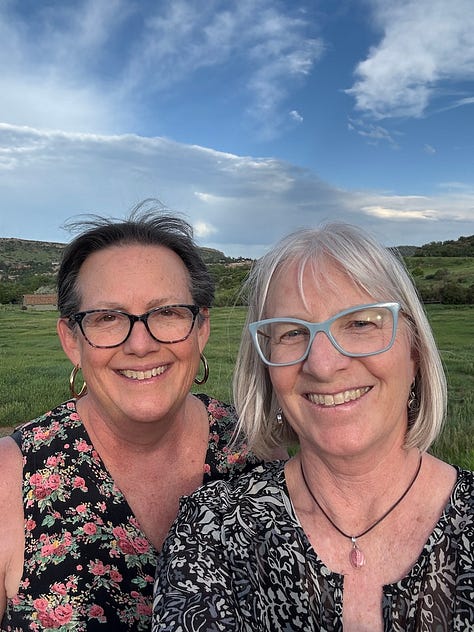

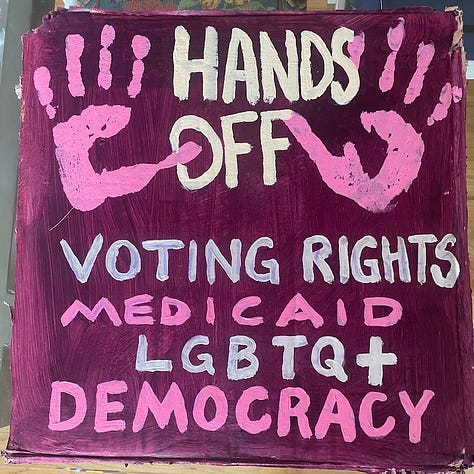

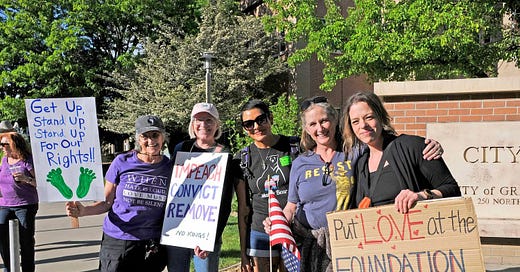



Ahhh…so inspiring. I wrote about out-rage this week and have just noticed it’s wise elder cou-rage in your piece. Morphing outrage into courage is maybe the bit missing from my piece…because my conclusion is that outage doesn’t hit the mark for lasting change. Thanks for reminding me that it is still possibly a step on the path towards creative change 🙏🏾
Wonderful, Shelly! Your offline courage is very inspiring. We need these communities, the meetings face to face, to remember our voice and agency and strengthen the habits of the heart. Thank you so much for sharing this encouraging practice 💗🙏